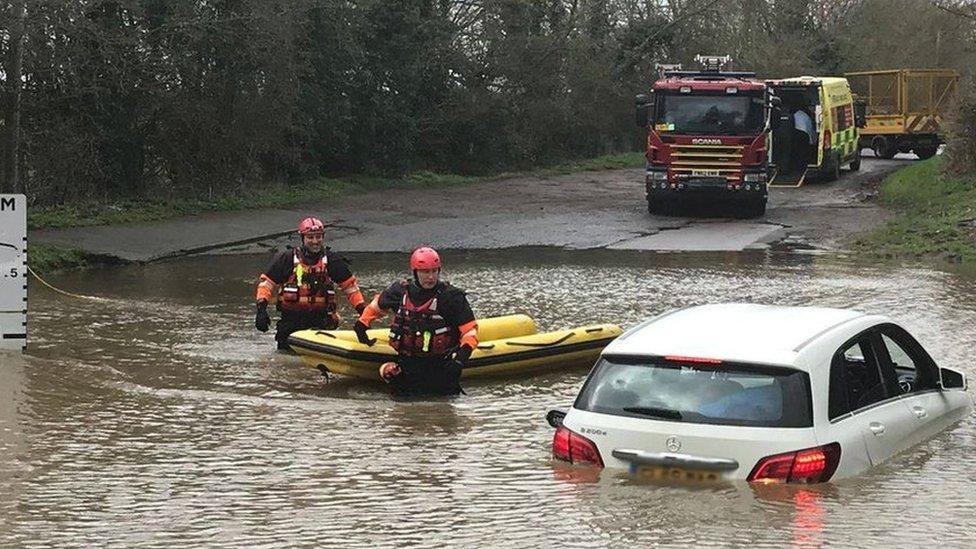Environment Agency chief: Avoid building new homes on flood plains
- Published
- comments
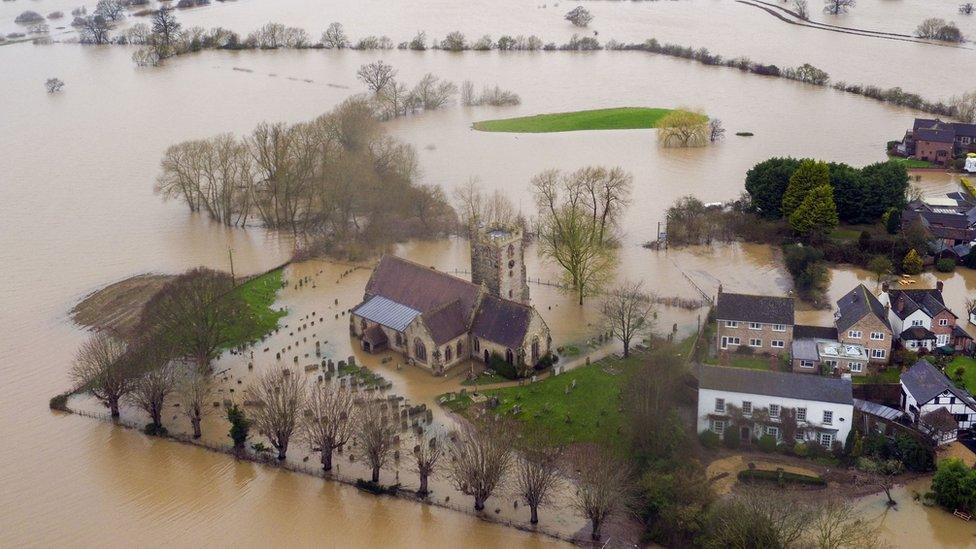
Floodwater swamps Severn Stoke in Worcestershire at the weekend
Building new homes on flood plains in England should be resisted if at all possible, the head of the Environment Agency Sir James Bevan has said.
He said where there was no alternative, homes should be made more resilient, for example by using ground floors for garages so people stay safe upstairs.
He also argued there may be a need to shift some communities out of harm's way when the risks become too great.
It comes after Storms Ciara and Dennis caused widespread flooding.
In Shrewsbury, river levels are set to reach their highest-ever level on Tuesday, where a severe flood warning - meaning a danger to life - is in place.
Asked whether vulnerable communities could be evacuated, Sir James told BBC Radio 4's Today programme "almost all" residents can remain where they are and their flood defences improved.
However, he called for a "conversation" about their sustainability and protection in the long term.
"Most people would accept" that some homes should not have been built, he added, and insisted this was not about forcing people to move but about discussing realities.
For years the Environment Agency - which covers England - has raised concerns about building homes on flood plains, and Sir James is set to reinforce that message in a speech later.

Sir James will say the "hard truth" is that it may be better for some communities to relocate
He is expected to acknowledge that it is not realistic to ban all development in these areas because they cover so much of the country.
But he says homes should only be built there if "there is no real alternative", and if they are designed to be more resilient to flooding.
Examples of some techniques which could "flood-proof" homes include using the ground floor just for garages, planting trees, creating wetland habitats or restoring rivers that have been artificially straightened to their "natural curves".
Inside a "flood-proof" home
Sir James will also question whether it may be better for communities to move out of harm's way when the risks of flooding - either from rivers or the sea - become too great.


It's nothing new for the Environment Agency to warn about home building on flood plains - we've heard that for years.
But by repeating the message now, in the midst of the continuing devastation following Storm Dennis, Sir James Bevan hopes to attract more attention.
Like other senior figures in the agency, he wants to stimulate a national debate about how to prepare not just for the next floods but also for a future with a more hostile climate.
He raises some profoundly difficult questions such as whether it's feasible to build ever bigger flood defences.
And he's stepping into sensitive territory by flagging up what he calls a "hard truth" that some places will become too hard to protect from rivers or the sea.
In those cases, he says, "it may be better for communities to choose to relocate out of harm's way." That's quite a bombshell - and something most politicians would prefer to run a mile from.

Severe flooding has hit parts of England and Wales for weeks, in the wake of two storms which brought heavy rain and strong winds.
There are 112 flood warnings still in place, including two severe warnings for the River Severn at Shrewsbury and Ironbridge.
More rain is expected and river levels at Shrewsbury, external are forecast to peak to 5.5m on Tuesday evening, beating the previous record.
Ann DiTella, of Shrewsbury B&B Darwin's Townhouse, said 11 rooms had flooded, less than a week after water "destroyed everything in its wake".
'I cleaned up but the flood came all over again'
Meanwhile, dozens of people in Wharfage, Ironbridge, have been asked to evacuate as the River Severn may breach the flood barriers.
At the weekend, parts of Scotland were also hit by heavy flooding with several vehicles becoming stranded in Renfrewshire.
'Weather bomb'
Sir James' comments will be made in a speech at the World Water-Tech Innovation Summit in central London.
He will say: "First, we must continue to do what we have been doing for some years now: building and maintaining strong defences to reduce the risk of communities being flooded.
"But in the face of the climate emergency, we now need a second, parallel, track: making our communities more resilient to flooding so that when it does happen it poses much less risk to people, does much less damage, and life can get back to normal much quicker.
"The best way to defuse the weather bomb is better protection and stronger resilience. We need both."
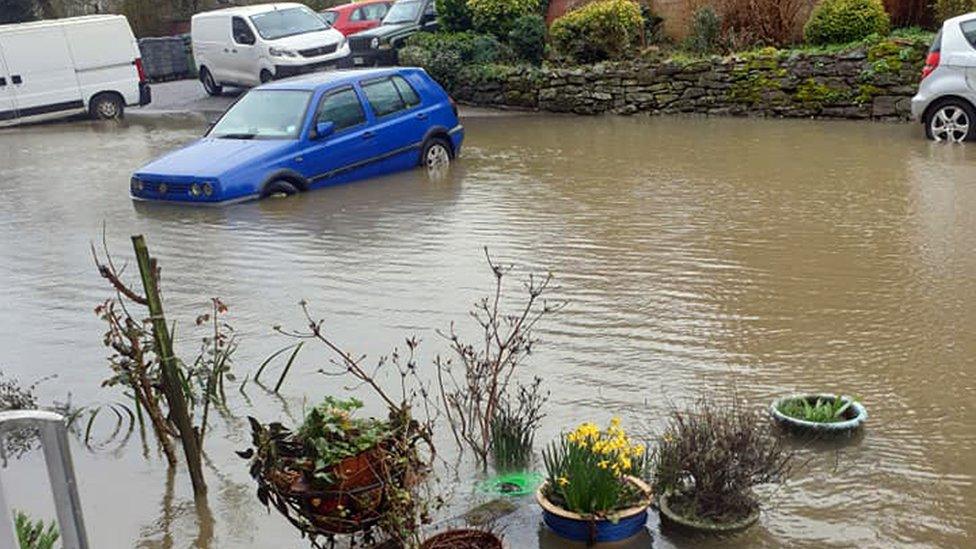
Floating flower pots and a car in floodwater on Coton Hill in Shrewsbury
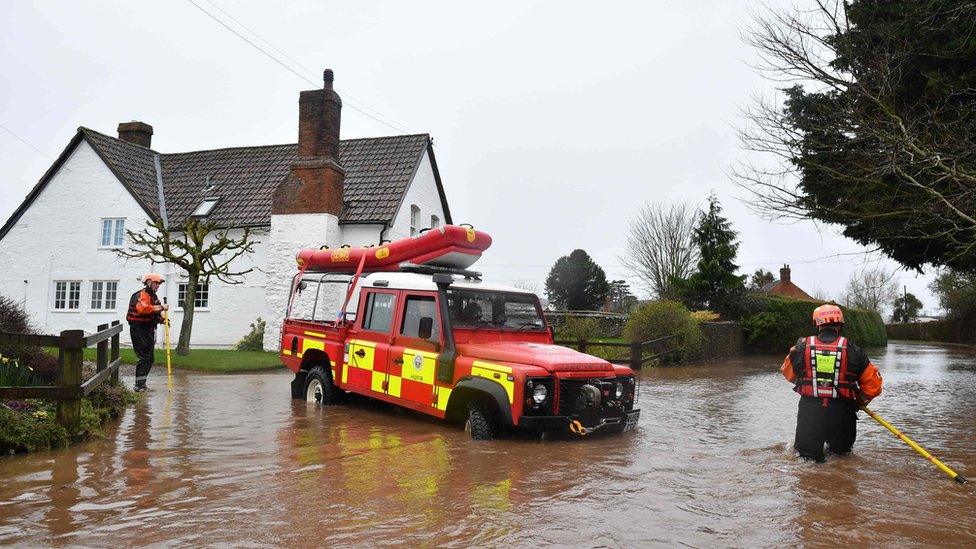
Fire and rescue workers in Hampton Bishop reverse their truck as water becomes too deep
The EA has said it is spending £2.6bn on new flood defences that will better protect 300,000 properties by 2021, plus £1bn on maintaining existing defences in England.
Because England has so many rivers, much of the country is a flood plain.
Sir James is set to warn that, with a growing population, the number of properties in the flood plain is likely to nearly double over the next 50 years.
Rivers rising: Highest water levels recorded in Wales
Scientists warn that climate change is raising the risk of flooding because winter storms will bring more heavy rainfall in a warming world.
England has already received 141% of its average February rainfall this month.
Some areas saw a month's worth of rain in 24 hours, and river levels in the Colne, Ribble, Calder, Aire, Trent, Severn, Wye, Lugg, and Derwent all set new records in recent days
- Published24 February 2020
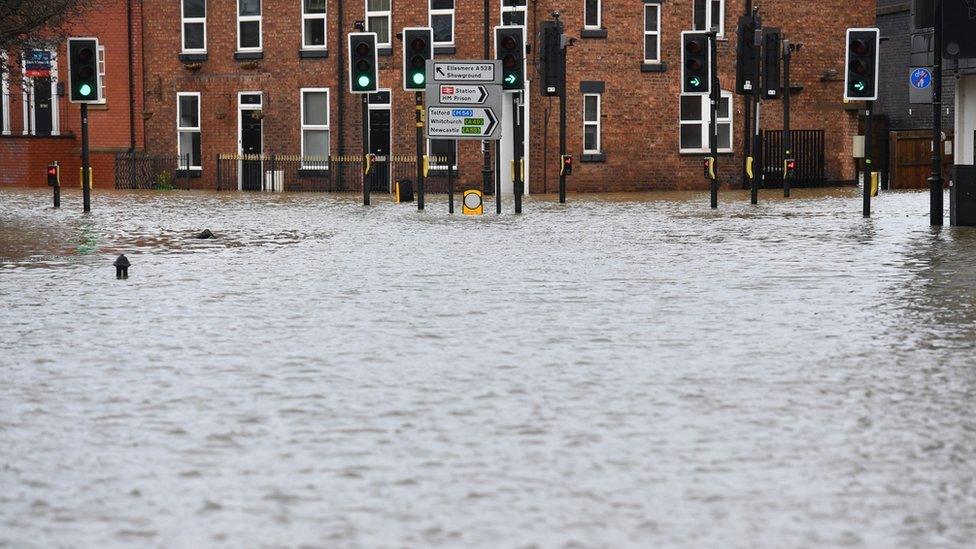
- Published24 February 2020

- Published23 February 2020
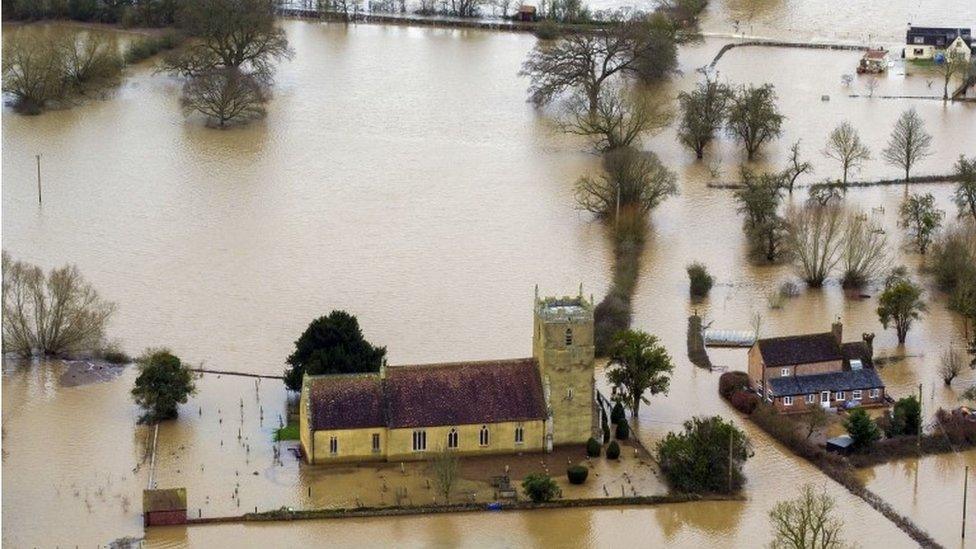
- Published22 February 2020
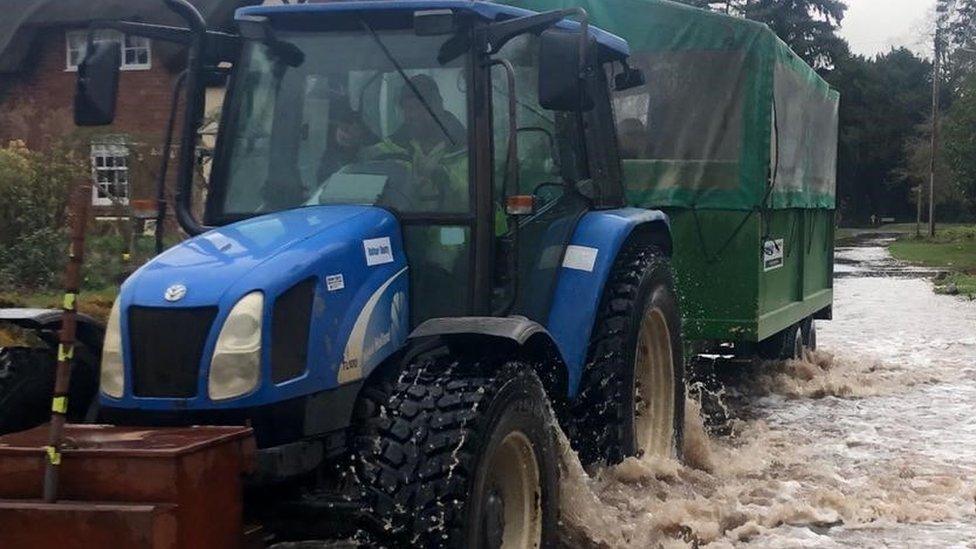
- Published21 February 2020

- Published21 February 2020
